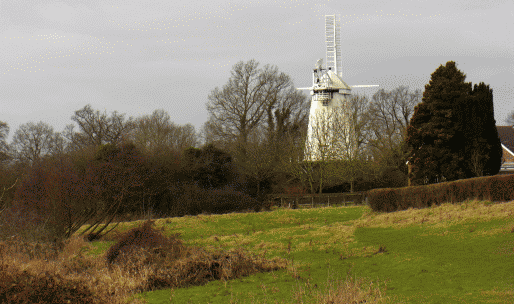Venue: Slindon Parish Church, Church Hill, Slindon, Friday 20th March
Dear Singers,
Please be at the church by 18.30 to give plenty of time for us to settle into the choir stalls, remember your surplices! No really, dress optional but anything green or blue would be an extra.
Parking is possible outside but the road is narrow, so I for one am going to the top of the hill, turn left at the junction, and park alongside the Slindon College wall on the left.
We have a loosely timed clear ‘running order’ with cues for the various songs on the night as below.
After an introduction to the evening, perhaps 5-7 minutes in:
• The Life of a Man
Then about 7-10 minutes later after a reading about the circumstances in which Belloc wrote the song:
• Ha’nacker Mill
Then just before the interval (to raise the energy before a drink):
• Twanky Dillo
• West Sussex Drinking Song
In the second half...
About 10 minutes in, after a reading:
• Rosebuds in June
To end, again after a reading:
• On Sussex Hills
If you have not volunteered to sing to date and want to come, please email me so that I can identify you on the door.
Regards,
John C.
Editor’s notes:
1. The time being advertised by the organisers for this event is 7.30 to 9.30pm, further details here.
2. On the spelling of “Halnaker”: various spellings have been used over the years, with the modern-day spelling of course being “Halnaker”. If you search the internet for the lyrics to the song, invariably the spelling used is “Ha’nacker” and I must presume that this is the spelling that Belloc chose to use.
Dear Singers,
Please be at the church by 18.30 to give plenty of time for us to settle into the choir stalls, remember your surplices! No really, dress optional but anything green or blue would be an extra.
Parking is possible outside but the road is narrow, so I for one am going to the top of the hill, turn left at the junction, and park alongside the Slindon College wall on the left.
We have a loosely timed clear ‘running order’ with cues for the various songs on the night as below.
After an introduction to the evening, perhaps 5-7 minutes in:
• The Life of a Man
Then about 7-10 minutes later after a reading about the circumstances in which Belloc wrote the song:
• Ha’nacker Mill
Then just before the interval (to raise the energy before a drink):
• Twanky Dillo
• West Sussex Drinking Song
In the second half...
About 10 minutes in, after a reading:
• Rosebuds in June
To end, again after a reading:
• On Sussex Hills
If you have not volunteered to sing to date and want to come, please email me so that I can identify you on the door.
Regards,
John C.
Editor’s notes:
1. The time being advertised by the organisers for this event is 7.30 to 9.30pm, further details here.
2. On the spelling of “Halnaker”: various spellings have been used over the years, with the modern-day spelling of course being “Halnaker”. If you search the internet for the lyrics to the song, invariably the spelling used is “Ha’nacker” and I must presume that this is the spelling that Belloc chose to use.



